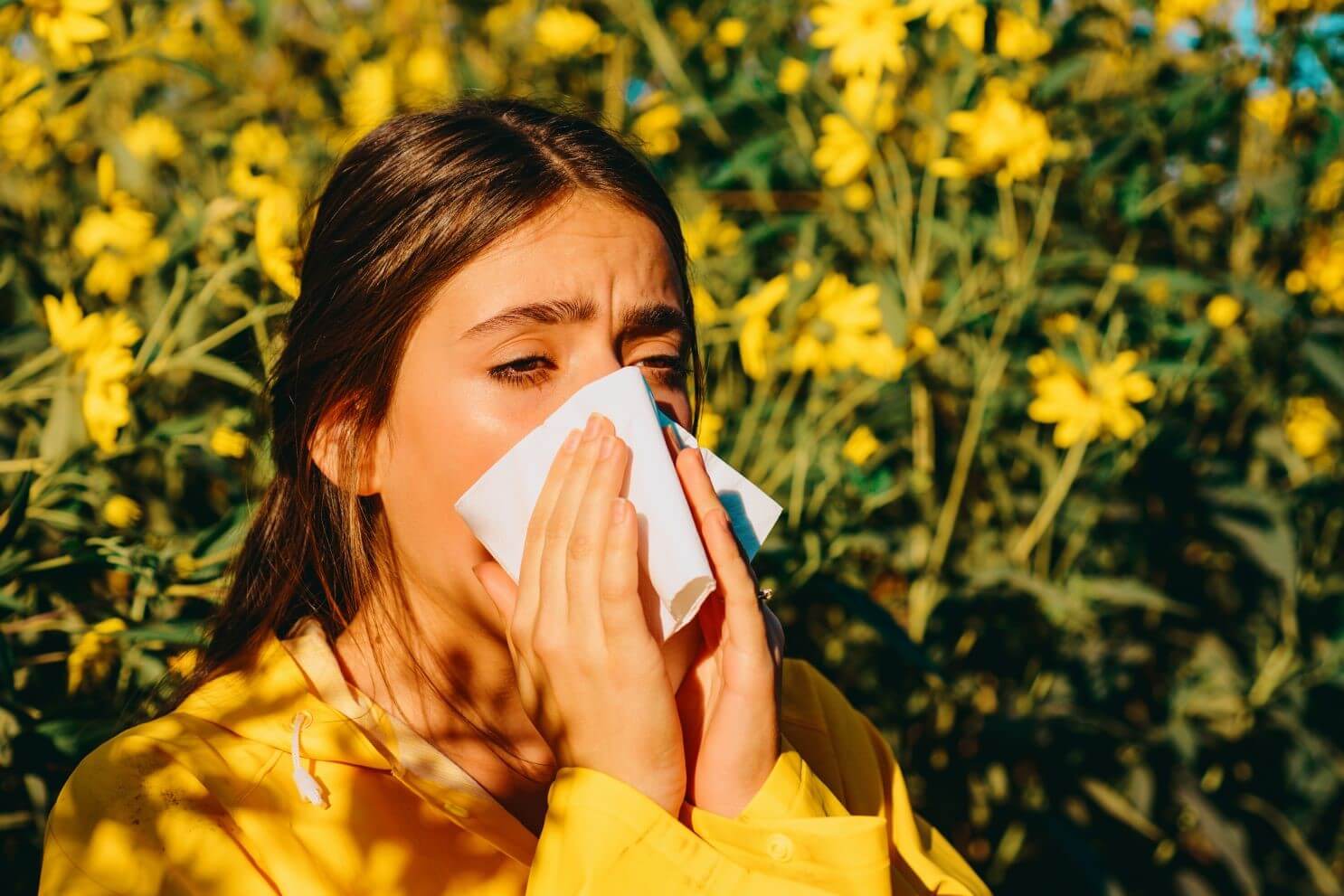If you experience allergies, it is important to stay prepared this season! While the sun and warmer temperatures are exciting and something many of us wait for, it can also be a time that activates allergies. You may be navigating environments with an increased pollen count, which is the most common type of allergy people experience.
The Centers for Disease Control and Prevention (CDC) estimate that more than 50 million people deal with allergies every year. Additionally, allergies impact nearly 30% of adults and 40% of children in the United States. If you experience allergies, taking the time to prepare for your allergies and practicing strategies to manage your symptoms can help you enjoy the season!
What are seasonal allergies?
Allergies can be more activated during the Spring season. Also known as allergic rhinitis, spring allergies involve a physiological reaction to a substance. What happens is that the body’s immune system overreacts to an allergen (a substance) that it is perceiving as dangerous to the body. This triggers a response system that is intended to neutralize the substance – consisting of releasing antibodies to target and eliminate the allergen. The immune system does this by releasing chemicals like histamine into the bloodstream and this produces the range of symptoms that we commonly associate with allergies: itchy/watery eyes, sneezing, congestion, scratchy throat, swelling, hives, stomach, breathing difficulties etc.
Though there are many types of allergens, the most common is pollen which is a substance that is released by trees to fertilize other plants. Because trees and plants bloom during the Spring, pollen count is higher and reaches its peak which activates allergies. Another allergen is mold, a type of fungi that grows in humid indoor and outdoor spaces. Changing temperatures and being in more humid spaces and environments can increase exposure to mold, also activating allergies. Allergens are typically experienced through the air by people breathing in the air which triggers the allergic response. Allergy symptoms can disrupt daily life and be unpleasant to experience so practicing ways to alleviate allergies is an important way to navigate environments with greater ease and comfort. .
Tips to Prepare for Allergy Season
There are a few ways you can manage your allergies effectively. Integrating the following strategies can help alleviate your allergies and the symptoms they activate:
- Be assessed by an allergist. It is important to be assessed by a specialist like an ENT (ear, nose, throat) doctor who can evaluate your allergies. Knowing what your allergies are and the specific allergens that activate them is the first step towards identifying effective treatment. Once this is identified, your healthcare provider is better able to recommend strategies, medications, and strategies to effectively manage your allergies.
- Reduce exposure to pollen. Pollen is the greatest activator of allergies during the Spring. Reducing your exposure to pollen is a helpful way to alleviate your allergies. A few ways you can do this include:
- Track pollen count: check your local weather resources to identify the pollen count and avoid being outdoors when the pollen count is at its peak.
- Clean often: regularly clean the areas where pollen tends to build up – air filters, bedding, furniture, carpets etc.
- Change clothes: change your clothes when returning home from being outside. They’ve likely collected pollen so be sure to change.
- Mold proof your home. Mold proofing helps reduce mold exposure by focusing on the areas where mold tends to accumulate: kitchen, basement, bathroom etc. A few strategies to do this are:
- Check for and repair any leaks in pipes or roofs.
- Ensure there is proper ventilation in these spaces.
- Remove mold from any surfaces with water and detergent
- Find the right medications for you. There are numerous types of medications that target and alleviate allergy symptoms. Antihistamines and decongestants are designed to alleviate the most common symptoms. There are various over the counter types that you can access to treat your symptoms. Additionally, there are remedies you can practice at home: using a neti pot, tea, using steam to alleviate sinus pressure, dehumidifier etc.
Practicing these strategies can help you manage your allergies effectively. Contact us today to learn more about how you can navigate allergy season!

